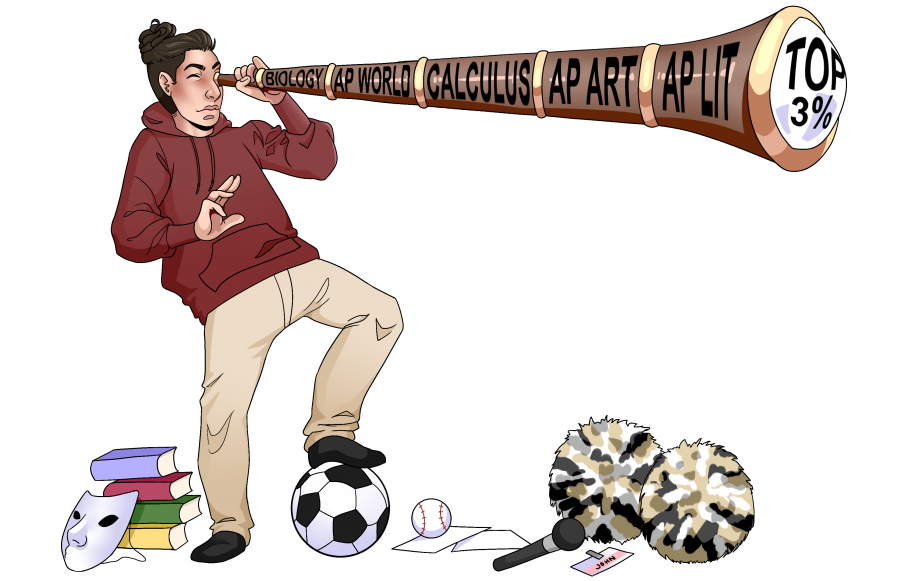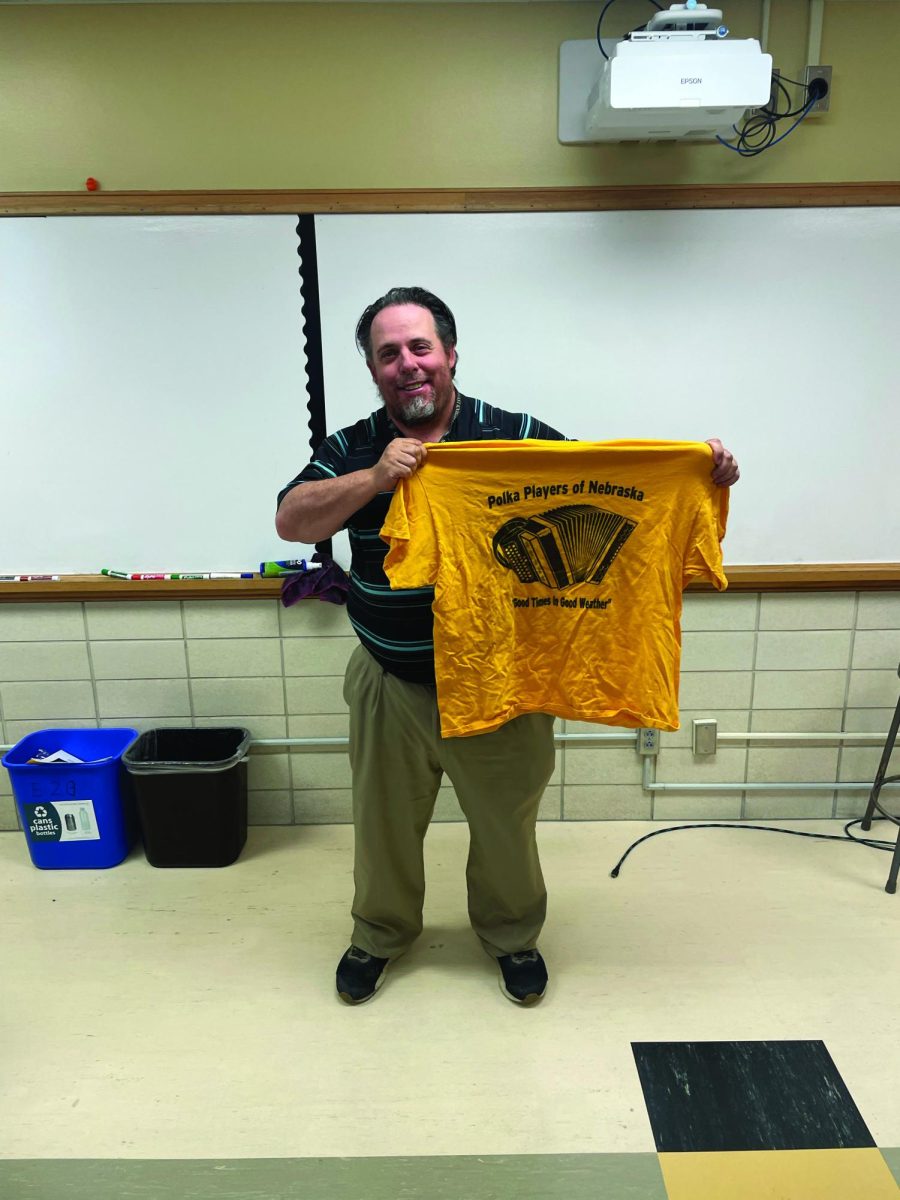By: Jillian Dlouhy –
It is all about the path you take, and what you accomplish during your trip, that determines where you stand after high school. Seniors in the top 3% of their class are coming to the reality of this as they face their last semester here at Southeast. These Knights have worked hard to reach and maintain their rank. Balancing sports, music, and other activities with rigorous academics shows their commitment to their future goals.
On average, sixteen hardworking students here at Southeast earn the title of being in the top 3% of their class. Many of your fellow classmates have GPAs of a 4.4 and higher, and keep their rank because of it. Students who maintain this high class rank do so by taking many AP and differentiated classes and keeping high standards for themselves. This garners the attention of colleges and scholarship opportunities, and has some other benefits as well.
Meredith Enersen and Abby Johnson are two seniors who rank in the top 3%. They both have put in many hours of hard work over their four years of high school. “[I’ve] have to find a balance of knowing when am I too stressed about homework, and when am I not paying enough attention to it,” said Enersen.
Johnson has participated and competed in many activities such as choir, wind ensemble, theater, cross country and track. Enersen also has taken many choir classes, acted in the school musical, been a Shirette, and competed in cross country. They both know just how demanding it can be to do well with academics while participating in many activities. “It has been rough, especially sophomore and junior year, [when] I’d be backstage doing homework a lot. [I’d] get home at 9:30-10 from [theater] rehearsal, and I’d [still have] a paper to write,” said Enersen.
Many of the classes Enersen, Johnson and the other students in top 3% have taken have been AP and weighted classes. “Don’t shy away. Just because it says differentiated or AP, that doesn’t make it impossible,” said Enersen. Many top 3% students challenged themselves and took Biology as a freshman, AP World History as a sophomore, and a lot of other weighted classes as juniors and seniors. “My favorite weighted class was AP World History sophomore year. It was the first AP class I took, and I don’t think I ever learned that much in a single class,” said Johnson.
Even though these classes take up a lot of time there are many benefits to taking them. Towards the end of the school year, students in AP classes take the AP test for that class with the purpose of receiving college credit. Enersen also has enjoyed the teachers and the skills they have taught her over the course of these classes. She said the teacher that has had the greatest influence on her is Mr. Dougherty.
“I will always look back to freshmen year when I had Mr. Dougherty in math…I think that [he] probably inspired me to just keep going [and challenging myself],” said Enersen. This was the first class where she began to like math more and understood it more. It ultimately led to her doing better in her other classes as well, she believes.
“They’ve worked hard and deserve recognition. I’m glad that we are able to recognize more than just the number one student in the school. But there is also a lot of kids who deserve recognition,” said Principal Toalson. He wants kids to come to school everyday prepared to learn and to work hard. He believes that when students do their best work, good things happen, and this is demonstrated partly with the top 3%.
Many students who are in top 3% also participate in music, theater, athletics, clubs, and various other activities. “When we look at students who participate in athletics, those students tend to have better grades. So for some kids, being an athlete gives them motivation to do well in school,” said Toalson. He believes that this applies to all of the activities that students participate in.
Competing and participating in these many activities on top of academics takes a great amount of time. But Enersen still finds time to be able to do a lot of other things. “It doesn’t really keep me from doing anything, especially as I’ve gotten older and have begun to prioritize more. [But] there have been times when I’ve said ‘well, I could do this homework or I could go out and make this memory and worry about this homework the next night, it won’t be the end of the world’,” said Enersen. She believes that the trick is managing homework, but still not being afraid to go out and enjoy high school experiences.
Still, this amount of academic work sometimes leads to students staying up through many late nights in order to maintain their school work, and having to prioritize. “It hasn’t really stopped me from doing anything. The only thing is probably sleeping. That’s about it. I get significantly less sleep,” said Enersen.
Many of the time-consuming AP classes that students take truly give them an idea of how tough college courses can be. Students have more homework, need to study more, and take harder tests. “I do need to work as hard as I do now and [will] keep working in college to figure out what I want to do. And it’ll benefit me a lot,” said Enersen. Teachers who teach these classes have the expectations of the students that is required in college. Having the study habits and learning the expectations required for college benefits these students greatly. Johnson said that, “The work ethic part has prepared me a lot [for college].”
Colleges that see students who are taking rigorous classes and have done well in them highly consider the students for their programs and scholarships. “I think [colleges] look at a number of things like ACT scores, for example, or recommendations,” said Toalson, “But I think they really [ask themselves] what are the classes that students are taking, did they really challenge themselves, and how did they do? Because that tells them about a student’s work ethic and commitment to learning.” Students with these characteristics in high school are more likely to carry determination with them through college. That is why colleges seek students who challenge themselves, and are able to overcome difficult situations.
“It felt pretty good to be able to put Top 3% on my application. It’s a good accomplishment,” said Johnson. She is happy with the work she has put in to make and sustain her rank. Even though “senioritis” may be prevalent currently for her and the other seniors, she is still working hard in her many AP classes this year.
College interest, studious habits, awards, and scholarship money are all things that can come with attaining the top 3%. For seniors every year, this is something that they can take pride in. It is a symbol for all of the hard work that they constantly have put in through all of their classes, but they are still just students. Enersen said that, “We just challenged ourselves throughout the years and it worked out well for us. We did the same amount of working hard and the same amount of winging-it that everyone else does. We just [worked to] challenge ourselves every year, and kept it up. That’s how we got there.”
Top 3% students who maintain their high class rank do so by taking many tough classes and keeping high standards for themselves. They still procrastinate, still participate, and still have social lives, but believe that challenging themselves on top of that has been the key to their success.







